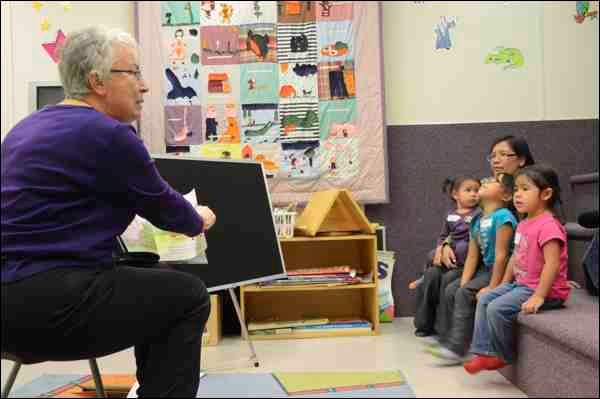Nov. 20 was National Child Day and Battlefords Action for Early Childhood hosted an event to release a locally produced video, Strong Beginnings Brighter Futures.
The event was organized in response to what researchers into early child development have described as a "crisis" - the growing evidence that young children are not doing nearly as well in a number of indicators as they should be. Using a tool called the Early Development Instrument, which is in use across Canada and in over 14 countries, researchers came to the conclusion that kindergarten-aged children are not nearly as prepared for learning as their global, or Canadian peers.
The EDI measures kindergarten-aged children in five categories: physical health and well-being, social competence, emotional maturity, language and cognitive development and communication skills and general knowledge.
The test is completed by teachers some time after the middle of the school year, allowing teachers to get to know their students before they describe them. It is not meant for measuring individual students, but describing groups of children. According to data collected over 2010-11, Battlefords children are dramatically underperforming.
The developers of the test state that around 10 per cent of any population can be expected to be vulnerable in one or more category, with about 75 per cent considered to be ready or very ready. Canadian children perform poorly on the test overall, with around 27 per cent considered vulnerable in one or more category. But children from the Battlefords perform worse, with almost a third of children in the same situation. Children from the Battlefords are below average in all categories except emotional maturity.
Of the children who are considered vulnerable in three or more of the five categories, Canada and the Battlefords performed poorly again. About four per cent of Canadian students fell into the category. But double the proportion, around 7.8 per cent, were considered to have multiple challenges in the Battlefords.
The numbers had some people terming the situation a "crisis." Battlefords Action for Early Childhood emphasized the importance of these early years to child development, as research has shown clearly that early childhood is recognized as the most important developmental phase through the lifespan. In almost all categories of brain development, the most important developments happen when child is five or younger. Because of this, every dollar that is invested at an early age is worth between $6 and $8 invested later.
The experts gathered at the event agreed a comprehensive approach was needed to address the community serious shortfalls in the area of early child development, and they produced a video for new mothers.
The video, which features local doctors and medical professionals, stresses the importance of the early years, and mentions the wide variety of programs and experts in the community that can help with young children. In the accompanying brochure, everything from daycare to nutritionists to community programs is listed, giving new parents plenty of resources should they have questions.
Of course, a video alone will not change the dismal status of young children in the Battlefords, which is, according to EDI numbers, on par with inner-city Regina and second in severity only to the far north of Saskatchewan. But the solution to the issue begins with new parents themselves. As EDI studies showed across the province, performance was not as closely tied to income as one might think; the richest neighbourhoods in Regina scored surprisingly poorly. So-called "time poverty" may be one of the most important factors, and busy parents exist everywhere on the socioeconomic spectrum. By distributing the video and other resources to new parents, BAEC hopes to address the issue at its source, with new parents themselves.
Battlefords Action for Early Childhood, which produced the video with local participants, can be reached at 446-4545 or 445-1717.




